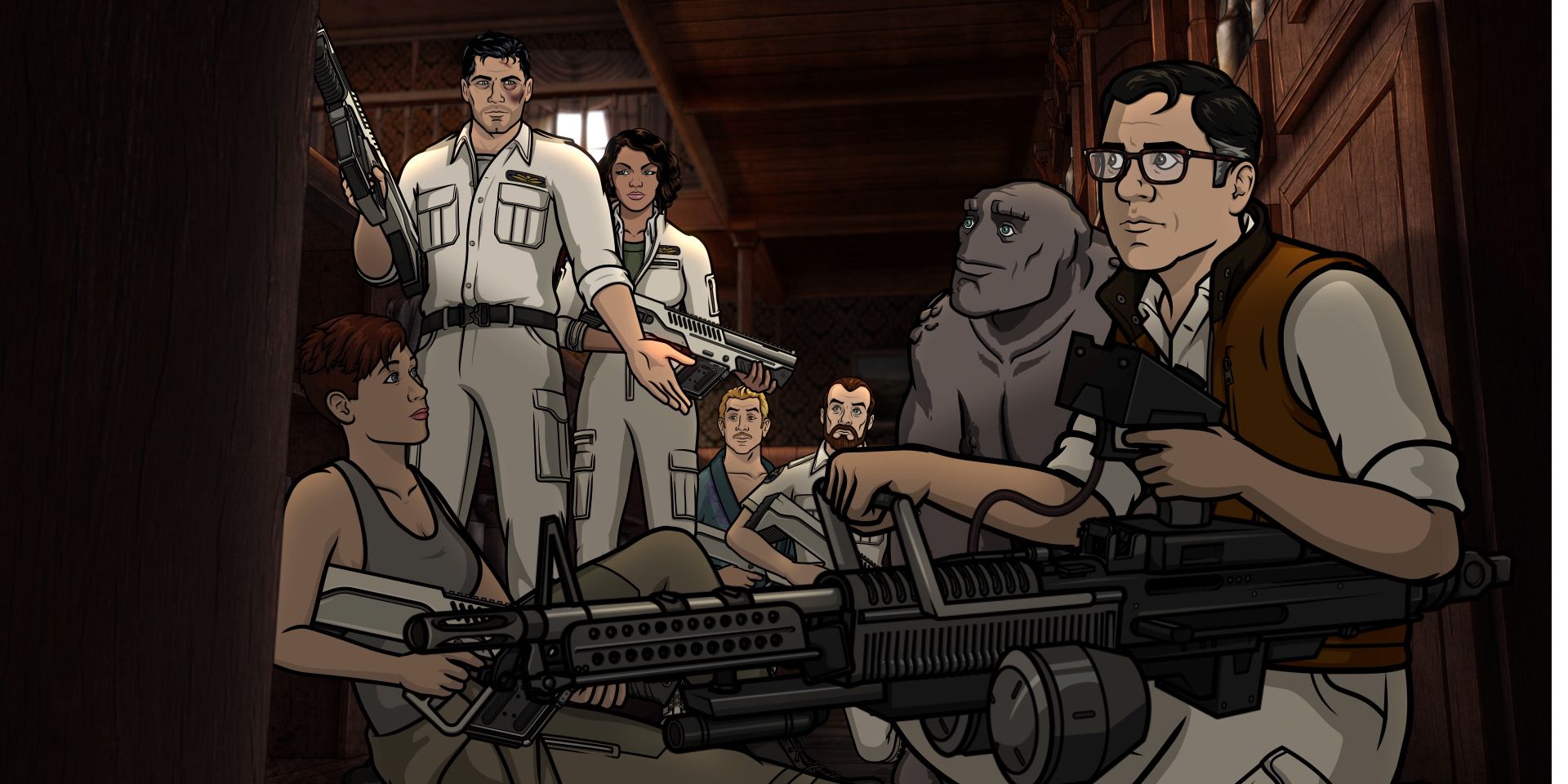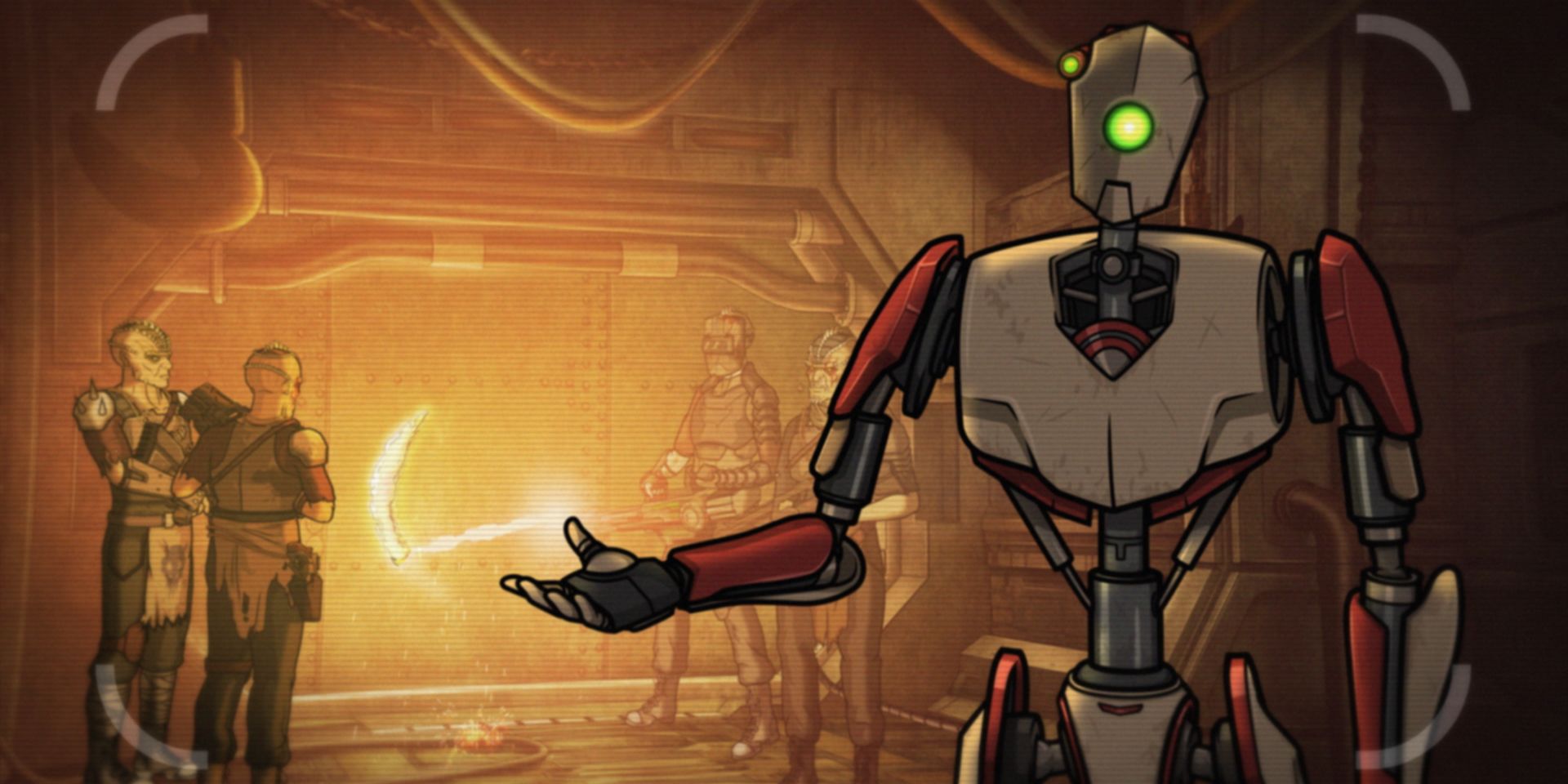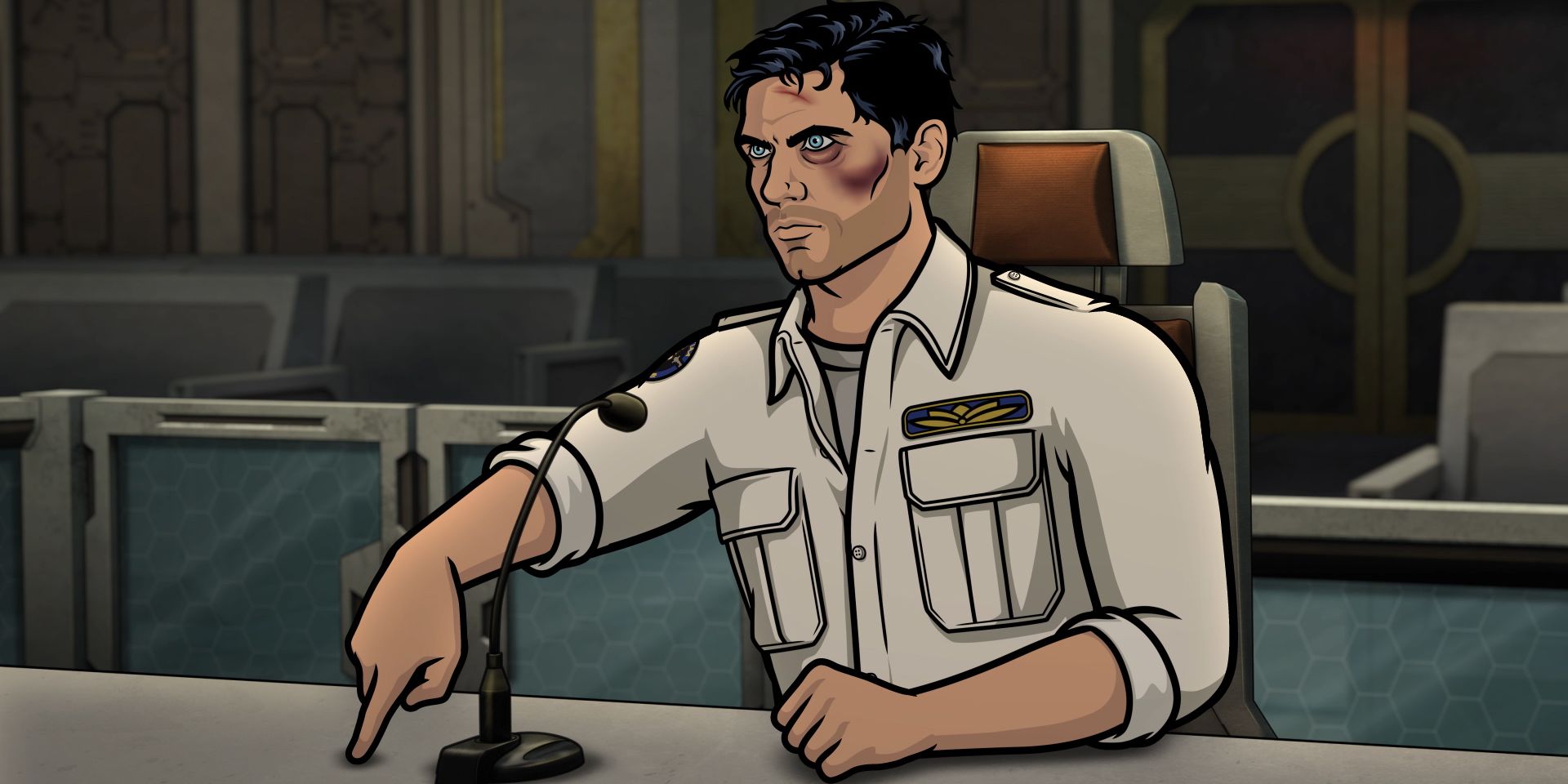To say that Archer: 1999 ends with a return to reality is a bit of a stretch, seeing as how outlandish the series’ “reality” actually is, but it’s safe to say that the show’s recent forays into the surprisingly imaginative depths of its title character’s comatose mind have come to a conclusion. On one hand, it’s a welcome shift back to where the series began, while on the other, it demonstrates both the creative power and narrative limits of the show’s last few seasons. That is, while Archer has been in Dreamland and on Danger Island, as well as this season’s deep-space setting, each storyline has teasingly denied the audience what amounts to closure in its stories, simply as a function of keeping the narrative stratagem going.
Sure, last two seasons have ended with Archer knocking on death’s door, only to find himself in yet another dream or, as is the case with the season 10 finale, ‘Robert De Niro,’ waking up in the hospital room with his mother watching over him. But it has essentially been one long wait, wherein the big payoff of each season isn’t the satisfying end of one story, but rather the first details of what’s to come. It’s a creative gamble by series creator and showrunner Adam Reed, as the device’s efficacy is largely determined by the overall quality of the season that preceded it, and the promise of what’s waiting around the corner. In the case of Danger Island, the ending was a welcome end to a listless storyline, while the end of Archer: 1999 comes on the heels of a much more successful season overall.
‘Robert De Niro’ functions much like last season’s ‘A Discovery,’ in that the inter-group squabbling between Archer and the rest of his cohort is interrupted by a much larger and more physical threat. While last season that was a Nazi Cyril Figgis, this time around it’s the robotic Barry Six, a thorn in Archer’s side from the beginning of 1999. Barry’s storming of Archer and Lana’s ship comes just as Archer’s trial threatens to reach a verdict, one that will decidedly come down on the space captain, regardless his hallucinatory defense counsel from TV’s Michael Gray.
For the most part, it’s yet another example of how the Archer ensemble works best when it’s operating like a dysfunctional family, this time with Ray Gillette acting as the judge, while Lana and Cyril prosecute Archer. The quarreling over Archer’s destructive behavior and the threat of reprisal for his actions puts the character and the show on the brink of accepting consequences. But Archer has always been removed from the possibility of such devastating repercussions, and now, locked away in the brain of its main character, the show is further insulated from the possibility of having to deal with any sort of potential fallout. That is, of course, until the season’s final scene that lays bare the length of Archer’s coma and hints that the world the show will return to in season 11 will be considerably different from the one he left after prior to entering Dreamland.
It’s an interesting promise that has a retroactive effect on all that has transpired in the finale, the season, and even the two seasons prior. Reed handles the transition well, first using Archer’s bloody fight with Barry Six as a last-ditch attempt to show that, despite his many, many flaws, Sterling Archer is, essentially, a decent human who will sacrifice his own life to save others, even if, at the time, he’s mostly motivated by spite for his recurring robotic nemesis. That brief show of humanity makes the montage of Archer’s various exploits — most of which paint him in a hilariously less-than-favorable light — leading to his eventual awakening (the episode’s title totally makes sense now) a far more effective bit than it otherwise might have been had the show continued to solely embrace the more bastardly side of its title character.
Archer’s occasional run-ins with sentimentality and nostalgia are usually effective simply because the show keeps that side of itself tucked away under several layers of cynicism, gleeful immaturity, and acid-tongued wordplay. But the final moment between Mallory and her son doesn’t overdo it, despite not playing coy with its reveal of just how dedicated Archer’s seemingly cold, pickled mother has been while he was comatose. Reed makes the smart choice to use the shorthand between Mallory and the hospital nurse to demonstrate the depth of the elder Archer’s surprisingly maternal actions. But, in typical Archer style, Reed manages to make it just creepy and off-putting enough that Sterling’s final line of “ugh” balances out the otherwise persuasive sentimentality.
It’s a welcome return and a promise of a dramatically different status quo for when Archer returns for season 11. It also makes the often hilarious sci-fi absurdity of 1999 feel like a more insightful and meaningful excursion than it might have otherwise.
Archer will return for season 11 in 2020 on FXX.



